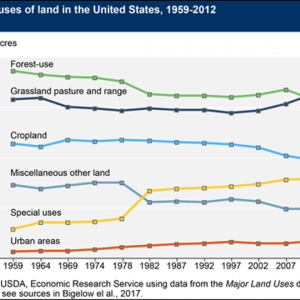Recently Reported Greenhouse Gas Level: 6,776.6 Metric Tons in 2018 (including CO2, CH4, and fluoridated gases), an Increase of 3.7% over 1990 Levels (Source: USEPA) The U.S. Environmental Protection Agency’s 2020 Inventory of Greenhouse Gas Emissions and Sinks: 1990-2018 reported that U.S. emissions in 2018 totaled 6,766.6 million metric tons (MMT), netting 5,903.2 MMT after...
Category: United States News Brief and Action Alert
Several States Pass 2050 Net-Zero Carbon Emission Laws While the US Federal Government Continues to Drag its Heels
Several American states recently strengthened their carbon emissions reductions targets. In August, Louisiana Governor, John Bel Edwards, signed an executive order establishing the Climate Initiatives Task Force; they are charged with reaching a goal of net-zero emissions by 2050 and a set of interim targets of reducing economy-wide emissions 26-28% by 2025 and 40-50% by...
The U.S. Global Change Research Program (USGCRP)
The United States is home to some of the most groundbreaking research on climate change, but at the federal level, research and development relating to climate change mitigation are not prioritized for funding, and it remains a contentious political issue divided along party lines. Republicans in Congress often support funding for innovation programs – that...
The Rate of Growth of Green Jobs in the US Depends on the Election Outcome
The 2019 U.S. Energy and Employment Report found that the U.S. Traditional Energy and Energy Efficiency sectors employed “approximately 6.7 million Americans or 4.6% of a workforce of roughly 147 million” in 2018, an increase of 2.3% from the previous year. Of these, solar and wind employed a total of 343,000 full-time workers, though solar...
The Link Between Systemic Racism and Climate Change in the US
In the United States, the greatest burden of climate impacts are disproportionately borne by low-income communities of color. Extreme weather events like storms, wildfires, floods, and heat waves cause health problems and property damage across the U.S. Low-income communities often lack funding to rebuild quickly from disasters and ensure resilience to future ones, and for...
US Aviation Bailout Program Lacks Climate Provisions
The commercial aviation industry has been hit hard by the COVID-19 pandemic, both in the United States and globally. The drastic drop in demand from both business passengers – with remote work, most regular business travelers can instead use video conferencing – and leisure passengers – with most of the world in lockdown, few are...
American Public Lands are Under Threat
More than 12% of the total land area of the United States and almost 20% of its marine area are protected by a combination of state and federal protections. However, only 5% of the U.S.’ total land mass is designated federally protected wilderness. The Wilderness Act, the strongest federal protection for public lands, preserves these...
US Yet to Significantly Include Climate Change Measures In Its Coronavirus Economic Recovery Programs
The first case of COVID-19 in the United States was recorded on January 21, 2020; by May 1 over 1,000,000 cases had been reported. To slow the spread of the virus, states across the country issued stay-at-home and shelter-in-place orders, instituted social distancing measures, and closed non-essential businesses. President Trump declared a national emergency on...
Energy Sector Reform in the US Means Make Coal Great Again
In order to comply with the Paris Agreement, the U.S. Environmental Protection Agency under President Obama passed the Clean Power Plan, a standard that used the Clean Air Act to require carbon emissions from the power sector to fall 32% by 2030, relative to 2005 levels. The plan did not regulate individual power plants directly,...
Absence of a Federal Carbon Price and Mechanism in the US
The United States does not have a federal carbon price. However, at the state and regional level, eleven states covering approximately thirty percent of the U.S. population participate in carbon pricing programs in the form of Cap and Trade systems. These include the Regional Greenhouse Gas Initiative (RGGI) for Northeast and Mid-Atlantic states and California’s...











